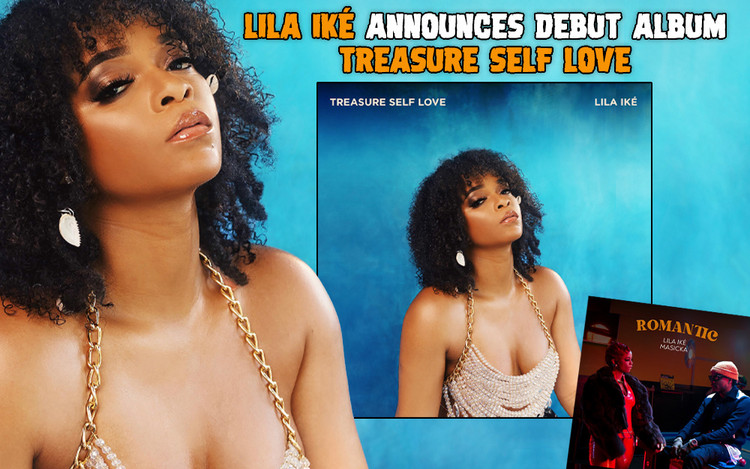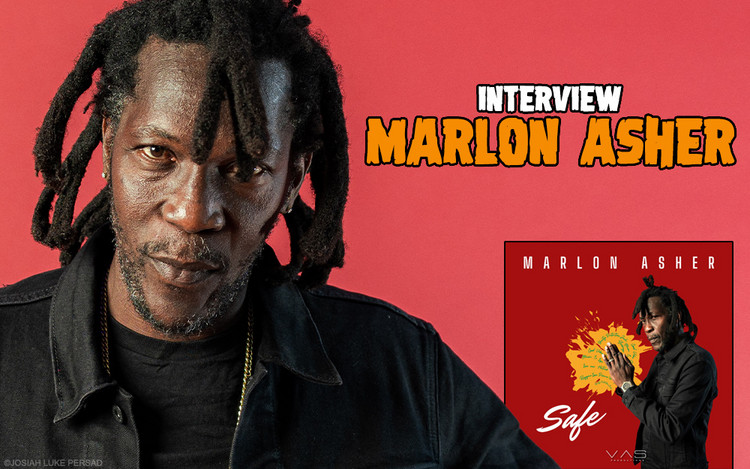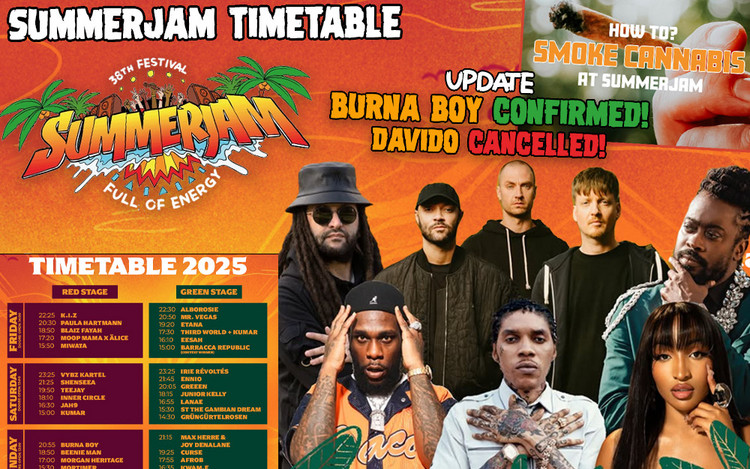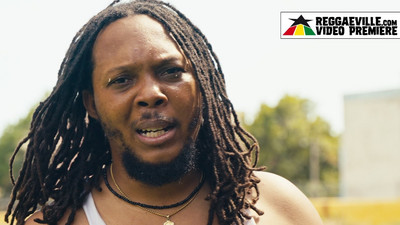Jimmy Cliff ADD
Interview: Jimmy Cliff
05/09/2013 by Angus Taylor
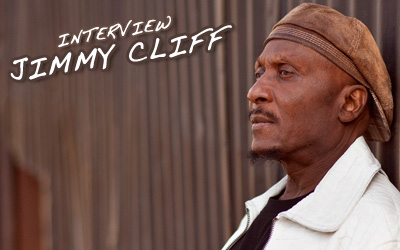
2012 was a bumper year for Jimmy Cliff. He emerged from the critical wilderness with the release of Rebirth, his first album in almost a decade, to widespread acclaim. Recapturing the frenetic style of his early 70s albums for Leslie Kong, and produced by Tim Armstrong of the punk group Rancid, Rebirth won a Best Reggae Grammy, was named as Rolling Stone magazine’s 12th best album of the year and just scooped an International Reggae World Music Award.
But Jimmy is not dwelling on that. He has plenty planned for the summer of 2013. He’s announced a UK and European tour starting in June and there is word of a radio session acoustic album on the horizon. Although when Reggaeville called up Jimmy to talk it over, the news had yet to reach the man himself!
Rebirth won multiple awards. What do you think of awards for music in general? Are they important?
I called the album Rebirth and from the evidence of all that is happening, it is a Rebirth. I did obviously foresee that I was ready to be reborn, and it is a good feeling. The greatest award for me is when the people embrace the work. So when a group of people get together and say “We are going to award you for so and so” it’s acceptable for me. But when the people accept you it’s a bigger acceptance. And the people have responded very positively, even in Jamaica, so that is good.
Recently on your Twitter you asked your fans what they thought about artists re-recording their old classics. Do you plan to re-record your old classics on your next album?
People have always been saying to me “Why don’t you make an album in such and such a way” so that is why I asked. I have to really feel like the fans really want it before I do it because I am really not one to go backward. I really prefer to go forward. Having said that, with this last album I went backwards to the roots of the music with the sound. But it’s not something that I relish doing. I’m working on so many things right now that I have enough material for maybe two albums. I don’t know at this point in time what direction I’m going to take. I just really want it to be fresh and different from this last one.
What’s your favourite cover of a Jimmy Cliff song?
You will notice I covered two songs on this last album – Guns of Brixton and Ruby Soho – and I really think I kind of made them my own. I think that if you had never heard those versions and you heard my songs you would not know they were covers. So when someone covers my songs that is what I like to think they have done – made it their own. When I listen to the cover of Trapped by Bruce Springsteen, I say “Wow that’s his song” because it’s totally different from mine. I think Cher did a good version of Many Rivers To Cross too. I think Johnny Rivers did a good version of Sitting in Limbo. I’ve heard a few where I’ve said “That’s your song, not mine”.
Have you heard the English band Soothsayers cover of Sooner or Later? It’s still in a reggae style but the singer Julia Biel sings in it in a very soulful and affecting way.
I have not heard. I would love to hear that. I must check that out. From the first point, that it’s a woman singing it, that makes a difference right there.
Those lyrics are very inspiring and motivational. Can you remember writing that song?
I don’t remember exactly but generally I would say that I came out of a situation in my life where I’ve always had to be lifting myself up. When I went to Kingston I could have gone either way – negative or positive. I was in an environment where I saw many of my friends die. So I had to be always looking inside of myself and trying to uplift myself and in doing so it seems I have sent it into the lives of others – which I’m very happy about.
I must confess that when I asked you about covering your old classics I was wondering if you had some information on a forthcoming 9 track acoustic album from a session you did for KRCW last year where you cover songs from Rebirth and your old classics. Are you aware of that one?
(laughing) Okaaaay! Yes I do remember the radio session but I wasn’t aware that someone is about to put it out! I’ve done quite a few shows like that, especially in America. I’m not sure if they have them where you are in the UK now? They call them Storytellers. I try to remember how I wrote the song and I tell the story like the question you just asked me. Those things are very interesting to people – to fans – to hear. They can say “I can relate my life to that as well”. Maybe I might do an acoustic album like that. I don’t know.
You played that session with just you and a guitar. Do you feel more exposed as a performer doing it that way – just you and the songs?
It’s more exposed and very much more intimate. Because you’re really seeing how the song came. Because when I get a song, ideas come to me in my head first and then I work it out on a guitar. You are seeing the intimacy of me writing the song so it’s very much exposed.
You are about to come to the UK in June and July on your European tour. Are you looking forward to returning to your old home?
Yes, I am very much looking forward to it. A great portion of my life I spent in the UK, so every time I return means a lot to me. It’s like, shall we say, a second home. You left it but you still have roots that you planted there and that is going to be a part of me for the rest of my life.
As someone who sees the UK as a second home, how would you assess the legacy of Margaret Thatcher? She was a proponent of an economic liberalism that you criticise on one of the songs from Rebirth and which you cover on the KRCW session, Children’s Bread, which seems aimed at the banking crisis.
She was one prominent figure! She was a controversial figure. Quite controversial for the, let’s say, the poorer class of people. I don’t know if she was well embraced by them as much as by the upper class and the middle class. But I’m just kind of parroting what most people say. That song is speaking about that whole thing. Even though I said “Shuffling on Wall Street” it would just as well be London or Switzerland or France. Wall Street is symbolic of all the other places. But yes, it was that vibes that I was feeling. That was the exact inspiration for that song.
What do you think of the economic systems we are subject to?
I called my album Rebirth for many reasons. One is that we are in a period of Rebirth of the whole planet earth – politically, economically, spiritually, ecologically, the whole thing. So the whole economic system as it is today in a few years is going to absolutely have to start over new again because it’s not working. That whole economic system is over. The spiritual system – whether it be Christianity, Islam or whatever it is – all that is dying too. So it’s a Rebirth of the whole system – including the economic system - of the planet earth going on right now.
Going back to your upcoming tour, you often like to act out scenes from your film The Harder They Come when performing on stage.
(Laughs) Yes! Because that movie made such a big impact and there will be people who come up to you and say “This is my favourite scene” so the scenes I act out are the ones that are most repeated by people who say “I love the scene with you and the girl” “I love the scene where you were posing with the guns”.
The scene where you attack the preacher’s henchman with the razor is very violent.
Yes, it’s very strong. When players act out something it’s either drawn from somebody you know or you’ve seen it done where you have some evidence of it or you have some experience of it. That was a scene that I saw every day in the environment that I grew up in in Kingston. I saw that all the time. So I just reflect on that scene.
What are you reading right now? Are there any good books you can recommend?
I’m reading a lot of ancient Egyptian history right now. Because what I have come to find out is that most of the things that we do today originate from there – philosophy, music, politics, you name it. There are various writers in that field but I am reading a guy called Malachi York. What interests me with his writing is that most of the other Egyptologists didn’t point out that the ancient Egyptians were actually Africans – black people. This guy shows you that these were Africans and I say “Wow! These are my ancestors! We originated chemistry, medicine, language, writing”. That’s the big difference for me. From this guy I get all of that.
I want to ask about your Jamaican Maroon ancestry. As others have speculated about artists such as Buju Banton, could your Maroon heritage account for your rebelliousness in music – always wanting to do things your way?
Maybe, you know. My mother originated from the Maroons. I am from St James which is close to Maroon Town. In our lives our genealogy goes back to four generations. Your mother and father had a mother and father and so on. So one day for instance you may be a vegetarian and suddenly one day you start eating meat. Where did that come from? Maybe someone way back in maybe your third generation surfaced and you think “Maybe I will taste this meat”. And if you feed that maybe you will start feeding that character – that part of your genes – and you will probably become that again. So yes, it is quite possible that a lot of that rebelliousness is in my generations back in that time.
Finally, there has been talk of a rebirth of rebellious roots music in Jamaica right now, or at least one that the mainstream media is becoming aware of. Artists like Chronixx, Protoje, and Jah9. Have you been listening?
I welcome it. In a way, the people are calling for it. They want it and so the artists emerge. It’s not like they were not there. They were there. But then hey! There’s one! Chronixx appears and then Jah9 and this other one. I applaud it definitely because there was too much of the other way. As if that was all that existed and that’s all we can do. We did not make an impact on the world with that kind of music we are doing today. We made an impact on the world with consciousness, an uplifting type of music. It’s still there and I’m glad to see it coming forward. I’m not putting down the other side because there is room for everyone. But this is really my part, my side of the music, so I am happy to see it.




